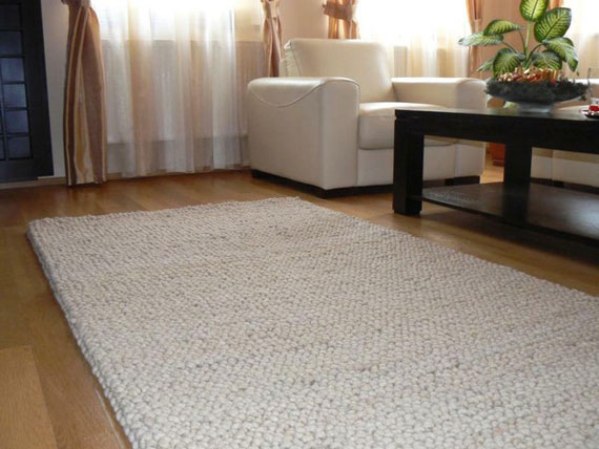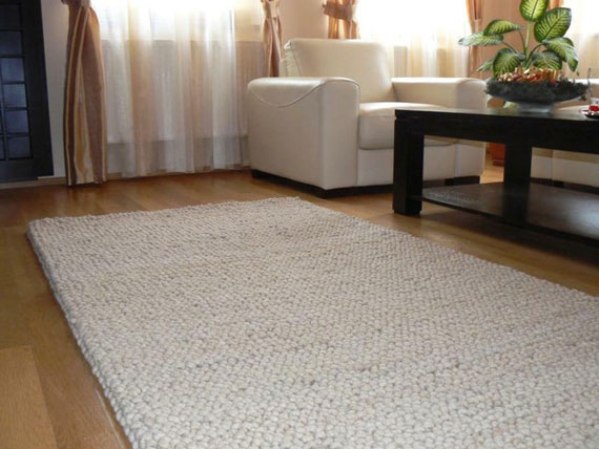The History of the Carpet
In the days of old, most houses had dirt-floors which were undesirable to say the least. Next came raw wood flooring, or even marble for the few upscale abodes. However, when marble became wet or muddy – not exactly a rare occurrence in Britain – it was extremely slippery, so carpets were introduced to prevent the upscale residents from falling. Thus, carpeted floors became synonymous with wealth and luxury, and soon everyone was following the carpet vogue; a trend that generally prevails today in Britain’s households. However, in our modern and eco-conscious world, the environmental effects of your carpet must be called into question.

Chemicals and Exposure
The cushioned step of a carpet provides more than just comfort; it also acts as a reservoir for VOCs (volatile organic compounds) and chemical toxins which can be found in the fibre bonding material, dyes, backing glues, fire retardants, latex binding, fungicides, and stain resistant treatments of carpets. Formaldehyde, the potent carcinogenic Benzene, and Butadiene (found in tobacco smoke) are just a few of the numerous unpronounceable but nonetheless dangerous chemicals carpets contain and emit at persistent low levels for up to seven years. Moreover, those who are at greatest exposure to these risks are children, as they tend to play and crawl closest to the surface of the carpet. If that weren’t enough to make you think, carpets are also a breeding ground for microorganisms such as dust mites, and harbour bacteria, allergens and mould.
The toxic nature of carpets may not be the only thing putting you off. Carpets are generally made from unsustainable materials. Synthetic carpets are composed of the fossil fuel petroleum and other chemicals. Up to 98% of synthetic carpeting is polymer can take more than 100 years to biodegrade – that equates to a lot of landfill mass! Nylon and olefin carpets are usually backed with PVC plastic which has been described as, among other things, ‘the poison plastic’. This is due to the chemicals utilised during and emitted after the production of PVC, which include toxic, chlorine based chemicals that can build up in the air and are linked to an array of health problems, such as cancer, immune system damage, and hormone disruption.
What Is The Best Alternative?
Given the barrage of negative information surrounding carpets, you may well be pondering the possibility of an alternative flooring option. Indeed, from the right company, wood flooring may provide the safer, more eco-friendly answer you are seeking; it has all of the aesthetic appeal with none of the chemicals, and a much more sustainable material – the phrase a tree for a tree comes to mind.
Green Apple Flooring is a leading supplier of carpets and wooden flooring options in the UK.
Are Carpets The Least Eco-Friendly Flooring Choice For Homeowners?

